The EU and US yet again blocked a proposal to rebuild endangered shortfin mako shark population, at an intersessional of the International Commission for the Conservation of Atlantic Tunas (ICCAT) held last week. The Global Tuna Alliance is staggered by this irresponsible behaviour and questions the sustainability credentials of these members.
The Global Tuna Alliance (GTA), a collaboration of highly-influential retailers, wholesalers, suppliers and processors of tuna, are concerned about the conservation of mako sharks. GTA partners are committed to improving the environmental sustainability of tuna fisheries, understanding that sustainability of any fishery must consider the wider-impacts on the ecosystem.
Mako sharks are commonly caught as bycatch in tuna fisheries and are among the most common sharks caught for food, with the EU landing the most (74%) – primarily vessels from Spain, whose take alone is enough to overfish the population, and Portugal who have increased their catch every year since 2014. Despite the perilous nature of the stock, US recreational landings increased from 2019 to 2020 by an estimated 13 metric tons.
Shortfin mako is classified by IUCN as globally endangered and has been listed under CITES Appendix II in 2019. However, in the Atlantic the situation is even more dire: ICCAT’s own Scientific Committee have warned since 2017 that shortfin mako has been overfished and overfishing continues and that – even if fishing could be cut to zero – the recovery of the North Atlantic stock will likely take ~25 years.
The GTA urges ICCAT to agree to protect shortfin mako sharks by heeding scientists’ warnings about North Atlantic depletion and South Atlantic imminent risk. Specifically:
- immediately prohibit all shortfin mako retentions, and;
- ensure specific scientific advice for minimizing incidental mortality is developed and implemented as a matter of urgency.
The GTA, alongside many other market and environmental organisations, called for such action to be agreed at the intersessional meeting this week and finalized at the annual meeting in November. Canada proposed such a measure which was co-sponsored by Gabon, Sierra Leone, the United Kingdom, Senegal, Taiwan, Guinea-Bissau, and The Gambia. They were supported during discussions by Norway, Japan, and Algeria.
Despite this wide-ranging support, the EU and US refused to follow the scientific advice and instead prioritized short-term economic gain. Despite this disappointment, discussions are expected to continue behind the scenes over the coming months and we urge the EU and US to look at the bigger picture and agree on a conservation plan at the annual meeting of ICCAT in November. But while delegates talk, catches of shortfin mako continue – and increase:
- Three of the top four mako fishing Parties – Spain, Portugal, and the US – report an increase in landings from 2019 to 2020.
- Spanish vessels exceeded a 2020 domestic Total Allowable Catch (TAC) by more than 500t.
- Portugal’s landings have increased every year for the last seven years and jumped nearly 20% from 2019 to 2020.
Dr Tom Pickerell, Global Tuna Alliance Executive Director, said:
“The GTA applauds the leadership demonstrated by Canada, the other co-sponsors and proposal supporters such as Japan and Norway. We challenge the US and EU to follow the science at the full meeting in November – realistically the last chance. There are no excuses; the North Atlantic stock is at the verge of collapsing and the South Atlantic stock is on a similar trajectory and catches are increasing. All excuses which are questioning the clear recommendation of the scientists must stop and ICCAT must take responsibility for the active conservation of this species.”
Notes
The Global Tuna Alliance (GTA) is an independent group of retailers and tuna supply chain companies who are committed to achieving more transparent, socially responsible, and environmentally sustainable tuna fisheries. Operating over 10,000 stores in 21 countries across four continents, they use their collective purchasing power to influence the policies set out by the tuna Regional Fisheries Management Organizations (tRFMOs).
International Commission for the Conservation of Atlantic Tunas (ICCAT) is an intergovernmental organisation responsible for the management of tuna and tuna-like species in the Atlantic Ocean. It is one of the five tuna Regional Fisheries Management Organisation (RFMOs).
